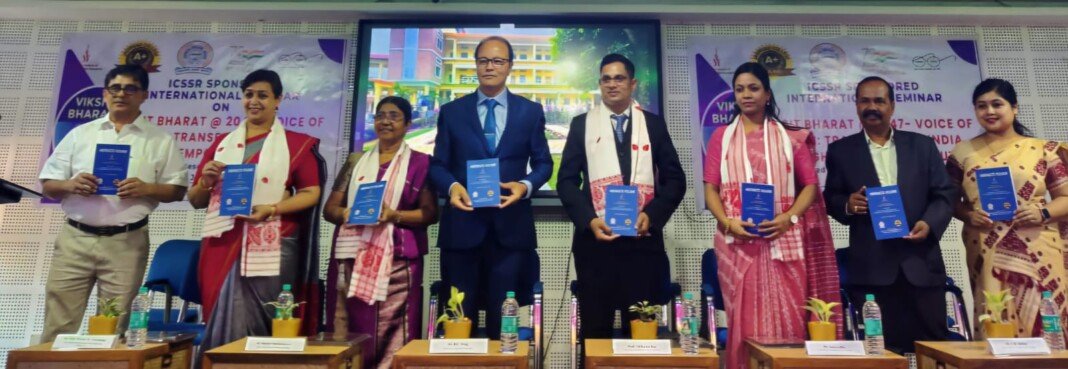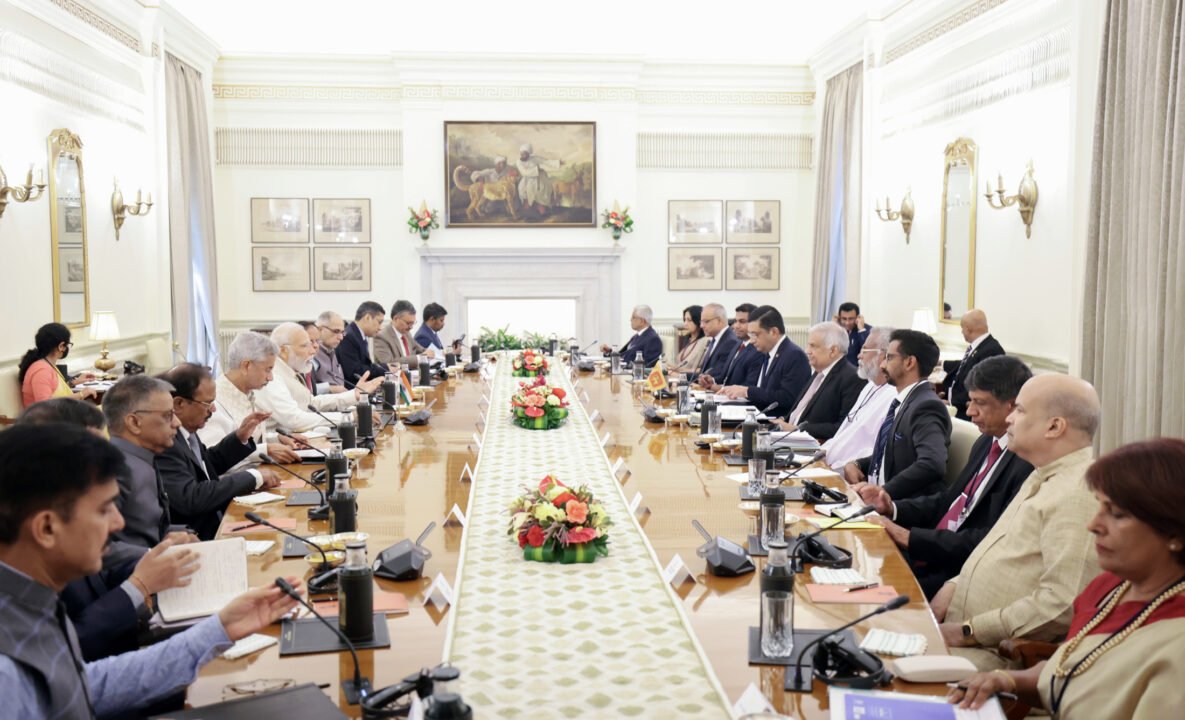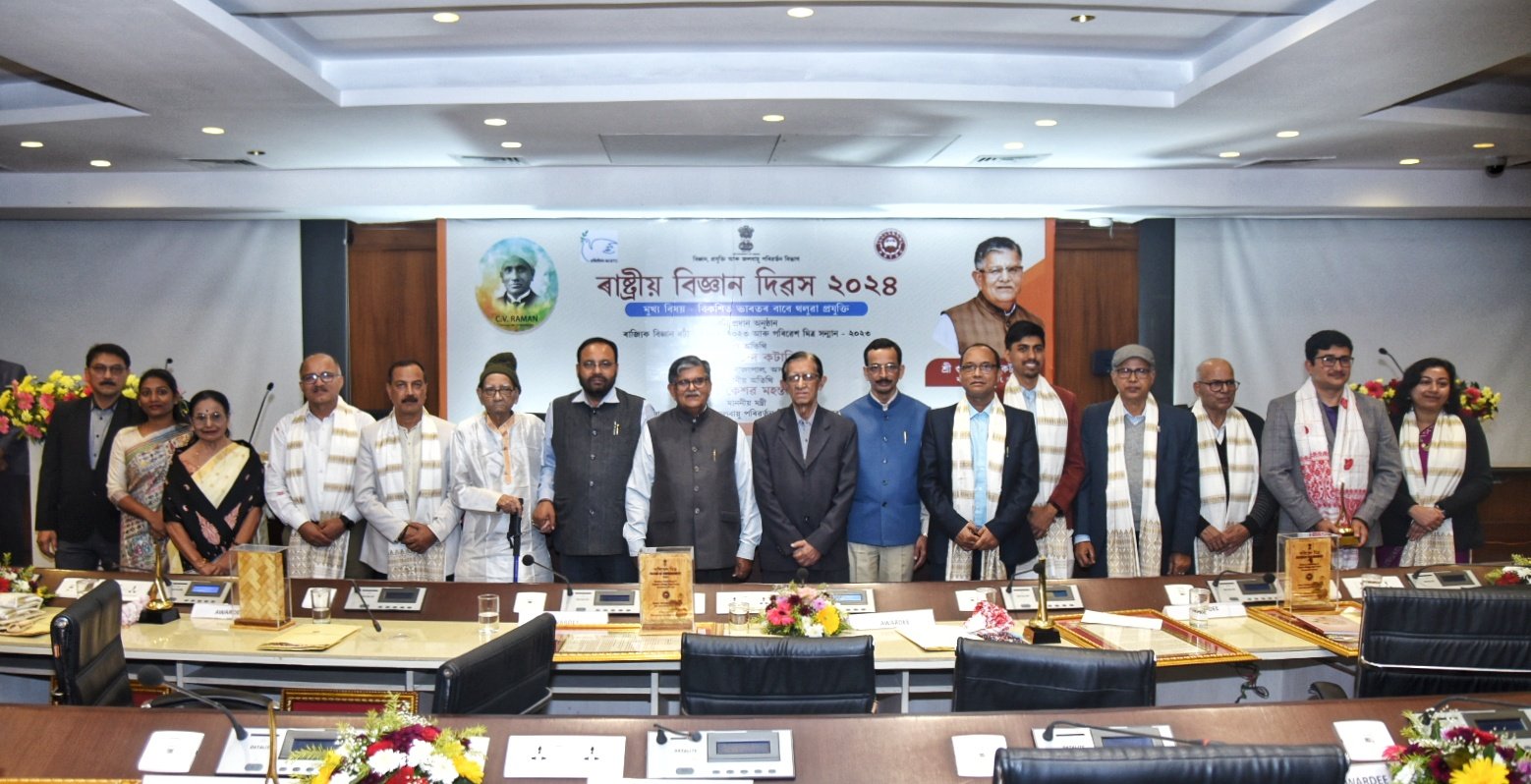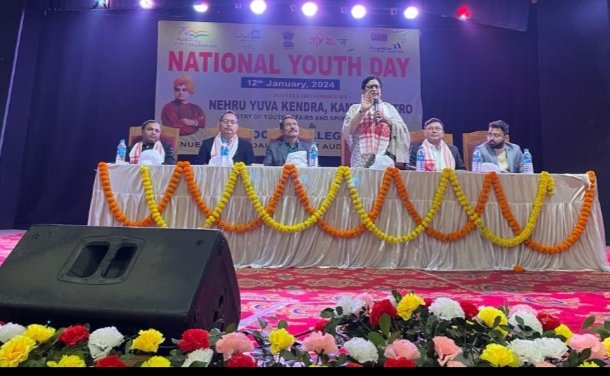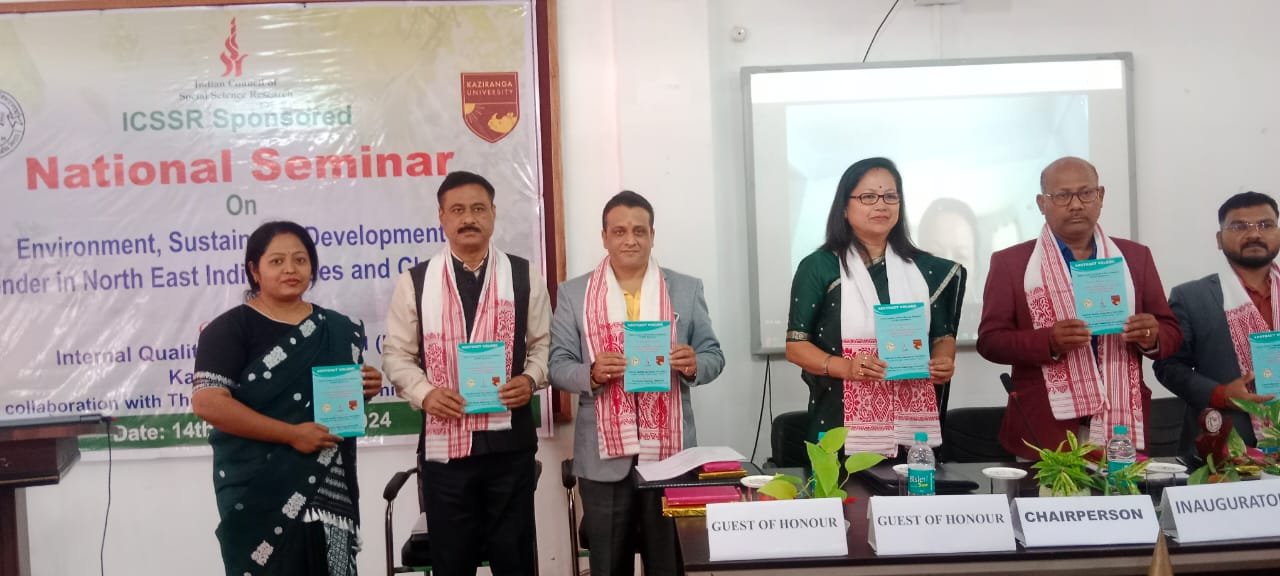HT Correspondent
JAGIROAD, Dec 3: Jagiroad College organised a two-day international seminar on ‘Viksit Bharat @2047: Voice of Youth: Transforming India through Empowering Youths’ to suggest a roadmap for India to become a developed nation by 2047. The international seminar was sponsored by ICSSR and organised by the Research and Innovation Cell of IQAC, Jagiroad College.
Distinguished keynote speakers included Prof Manjula Vithanapathirana from the University of Colombo, Sri Lanka, and Prof Hiranya Nath from Sam Houston State University, Texas, USA. Indian keynote speakers included Dr Rajani Panchang from Savitribai Phule Pune University, Pune; Prof Sherwin M Sungoh from North-Eastern Hill University, Shillong; Prof Nil Ratan Roy, Dr Antara Dey, and Prof Santi Gopal Maji from Tezpur University; Prof Dhrubajyoti Saharia and Prof Ratul Mahanta from Gauhati University; and Dr Daisy Das from Cotton University.
In the inaugural session, Dr Bhaben Ch. Neog, principal of the College, delivered a welcome address, emphasising the importance of India’s freedom struggle in the context of ‘Viksit Bharat @2047’. Dr Neog highlighted that during the freedom movement, all efforts were directed toward achieving independence. Similarly, achieving the dream of a ‘Developed Nation’ by 2047 requires collective effort, particularly by empowering and motivating the youth to actively participate in this mission.
Keynote speakers, including Prof Manjula Vithanapathirana and Dr Rajani Panchang, emphasised the importance of such seminars in encouraging young minds to engage in innovative research and contribute to the vision of Viksit Bharat. Prof Nil Ratan Roy and Dr Antara Dey praised the college for organising this international seminar.
The program was coordinated by Dr Utpal Rajguru, coordinator of the Research and Development Cell, and Dr CR Sarkar, coordinator of IQAC. Dr Gitumoni Rajbongshi, assistant professor in Economics and the seminar convener, elaborated on the significance of the theme. She highlighted that the seminar aligns with the Prime Minister’s vision of ‘Mission Viksit Bharat @2047’ and provides a platform for academicians to generate ideas, brainstorm solutions, and address challenges to achieve this goal.
Prof Manjula spoke on ‘Education in the Context of the Indian Economy – From the Perspective of a Sri Lankan Educator’. She emphasised that India’s demographic dividend provides an opportunity to use education as a tool for economic, social, and technological progress. She outlined key priorities, including equitable access to education, alignment of curricula with 21st-century skills, cultivation of social values, and integration of research and innovation.
Prof Hiranya Nath, delivering his keynote address online from Texas, USA, highlighted India’s demographic dividend as a critical asset. He stressed the importance of inclusive development and effective governance to address economic imbalances and ensure sustainable progress.
A total of 94 papers were presented during the seminar, with participants from Assam and across India, including West Bengal, Rajasthan, Gujarat, Karnataka, Sikkim, and Meghalaya. The seminar featured detailed discussions on various topics, such as improving the education system, skill development for youth empowerment, infrastructure’s role in economic transformation, and human resource management for ecological sustainability.
The seminar concluded with a valedictory session, attended by eminent personalities including Dr R Panchang, Prof Santi Maji, Dr Narayan Sharma, Dr Pranab Bujarbaruah, Dr B C Neog, and Dr C R Sarkar. They commended the systematic conduct of the conference and the quality of research presented. Certificates were distributed to participants, and a vote of thanks was delivered by Dr Gitumoni Rajbongshi.
A cultural program showcasing Assam’s rich heritage was held on the evening of the first day. Students performed Borgeet, Dasha-Avatar, Tribal Folk Dance, Mime, and Bihu, which were warmly appreciated by the guests.


